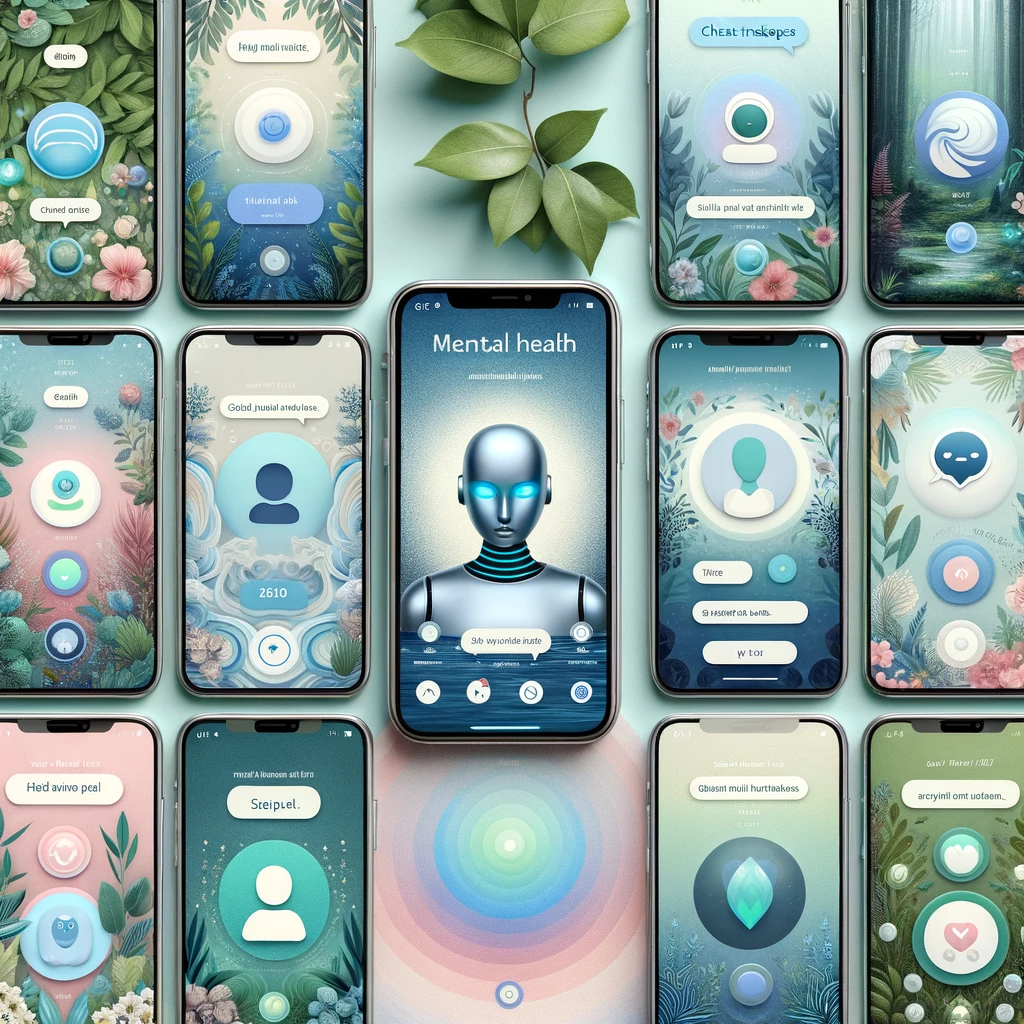In recent years, the intersection between technology and mental health has resulted in the development of several Artificial Intelligence Apps for Mental Health.
These tools promise to offer emotional support, reduce stress, and even help treat psychological conditions.
This article analyzes the effectiveness of these apps and how they are transforming mental health care.
Browse Content

1. Understanding Artificial Intelligence Apps for Mental Health
Artificial intelligence apps for mental health use advanced algorithms to provide personalized feedback, cognitive behavioral therapy (CBT), and mindfulness techniques.
They are designed to be accessible, offering real-time support to those who may not have ready access to traditional mental health services.
2. Main Benefits of Artificial Intelligence Apps
These apps offer a number of advantages, including 24/7 availability, anonymity, and customization.
The ability to access support anytime, anywhere is particularly valuable for individuals who live in remote areas or who have irregular schedules.
Additionally, the anonymous nature of these services may encourage more people to seek help.
3. Efficacy Assessment
To evaluate the effectiveness of artificial intelligence apps for mental health, it is crucial to consider studies and research that measure their impact.
Some research suggests that these apps may be effective in reducing symptoms of depression and anxiety, especially when combined with traditional therapy.
However, effectiveness can vary significantly from one application to another, depending on its quality and the type of intervention offered.
4. Challenges and Considerations
Despite the benefits, there are significant challenges.
Regulation and data privacy are primary concerns given that these apps collect sensitive information from users.
Additionally, the long-term effectiveness of these tools is still under study, and there is a need for more research to fully understand their impact.
5. Examples of Artificial Intelligence Apps for Mental Health
Several artificial intelligence apps for mental health stand out for their popularity and positive user feedback:
- Woebot: A chatbot that uses CBT to help users deal with feelings of anxiety and depression.
- Wysa: combines AI-based therapy with support from mental health professionals.
- Tess: a virtual psychologist who offers personalized emotional support.
Conclusion
Artificial intelligence apps for mental health represent a promising frontier in emotional care and support.
They have the potential to democratize access to mental health, making support more accessible and personalized.
However, it is critical to address privacy and regulatory concerns to ensure these tools are safe and effective in the long term. As technology evolves, it is essential to continue evaluating the effectiveness of these apps to maximize their benefit to global mental health.
With strategic keyword insertion artificial intelligence apps for mental health throughout the text, following the recommended density, this article not only informs but also positions itself in an optimized way for search engines, becoming a valuable resource for those seeking to understand the impact of these technologies on mental well-being.







